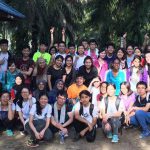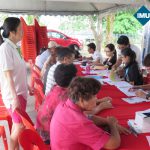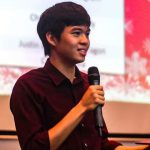I am Elaine Ng, a fully registered pharmacist in Malaysia. As a fresh graduate from IMU‘s pharmacy programme in 2018, I started my Provisionally Registered Pharmacist (PRP) training in Hospital Duchess of Kent Sandakan in the same year. PRP training was never an easy journey for many young pharmacist graduates out there but thanks to IMU, I was more prepared beforehand and experienced a hectic yet smooth sailing one year of training.
The 4-year programme in IMU equipped me well with adequate clinical knowledge by a multifaceted approach consisting of theory which includes expert lectures, tutorials and problem-based learning conducted by a dedicated team of experienced lecturers, and the practical aspect of OSCE which trained me to face various different clinical scenarios in real life. Apart from that, the mandatory clinical attachment to an external pharmacy of our choice and elective posting in a tertiary hospital gave us ample opportunities to truly immerse ourselves in the day-to-day responsibilities of a pharmacist, resulting in a rewarding learning journey.
After completing my PRP training, I became a clinical pharmacist in the pediatric ward. My job scope includes checking drug chart and performing intervention in cases of medication error, discussing with specialists to determine the best treatment options for patients, counselling and dispensing medications, interviewing patients and ensuring medication safety.
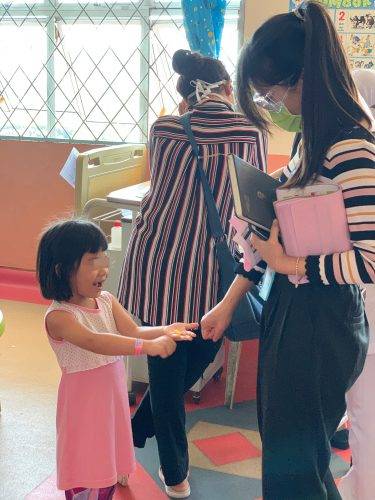
Despite the significant demands of my job, I managed to handle the pressure effectively thanks to my deep enthusiasm for the field of pharmacy and the gratification I derived from witnessing the successful recovery of sick children, who would then return home with radiant smiles.
Career as a full-fledged pharmacist is never a bed of roses as we have to shoulder more responsibilities in our service to the patients. Besides that, when working in a hospital with PRP training, I was given the task of teaching and guiding fellow junior PRPs in their training to ensure they evolve into competent pharmacists.
There were times when I have to deal with different problems in my daily practice such as difficult patients, language barrier, non-compliance issues, medication errors and logistic issues. Another issue that I commonly face (an issue especially faced by those working in Sabah) is pertaining to the socioeconomic status of non-local patients and patients without valid documents who are financially disadvantaged seeking treatment in the local hospitals. These individuals are required to pay higher hospitalisation fees, comparable to those charged to foreigners.
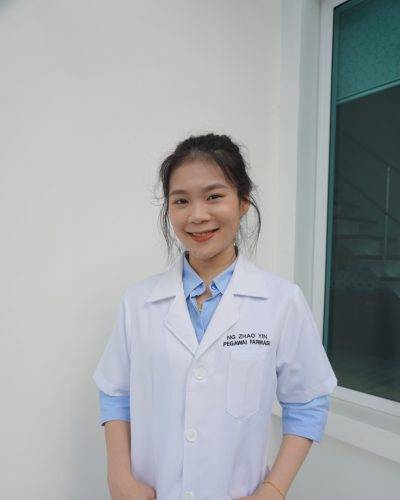
Consequently, as a significant number of them are unable to afford the necessary treatment, they resorted to desperate measures in order to cover the costs of hospitalisation and medication. Dealing with these problems is an important learning experience for me as I have learned to improve my communication with my patients as well as my soft skills.
As a pharmacist, my patient’s health is always my top priority. Helping my patients is my greatest pride and joy. Therefore, I would like to express my heartfelt gratitude to IMU for supporting me all this while and realising my dream of becoming a dedicated pharmacist. My special thanks also to all my IMU lecturers and friends.





